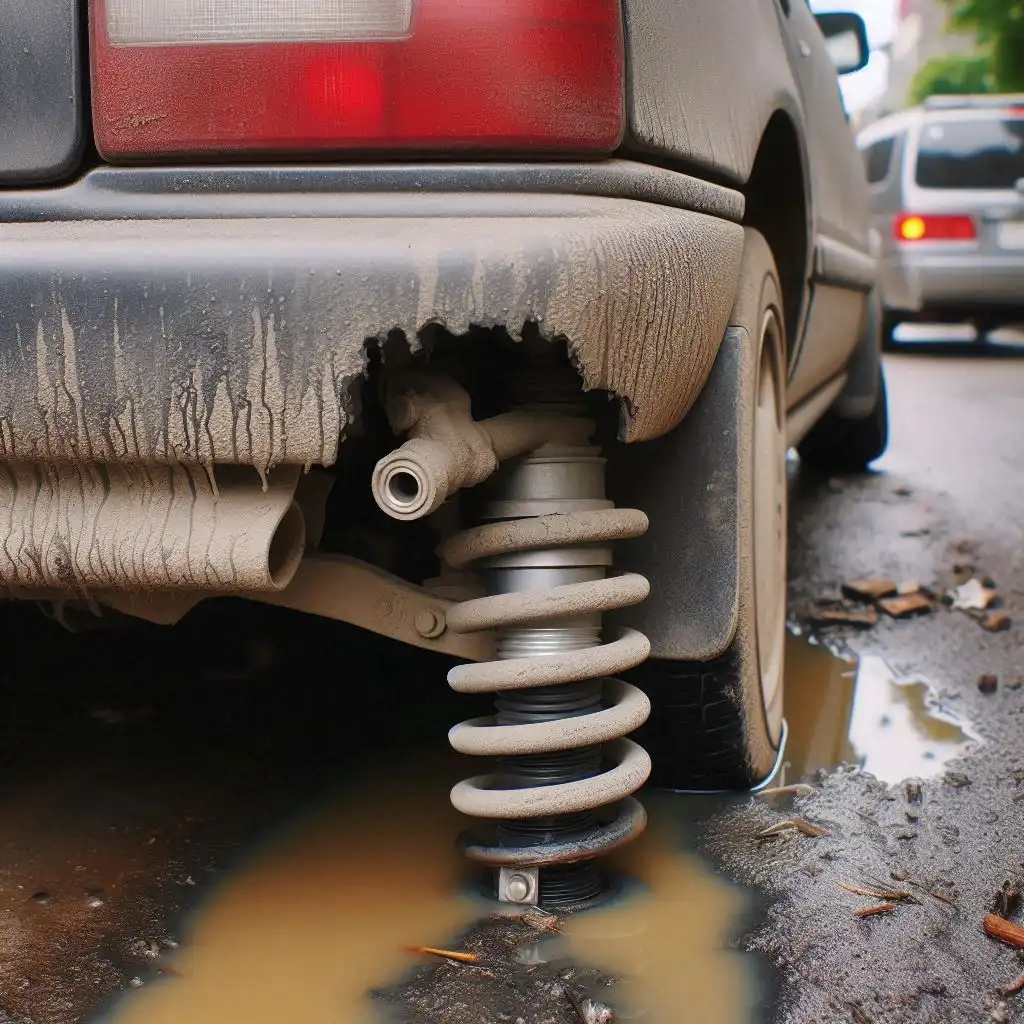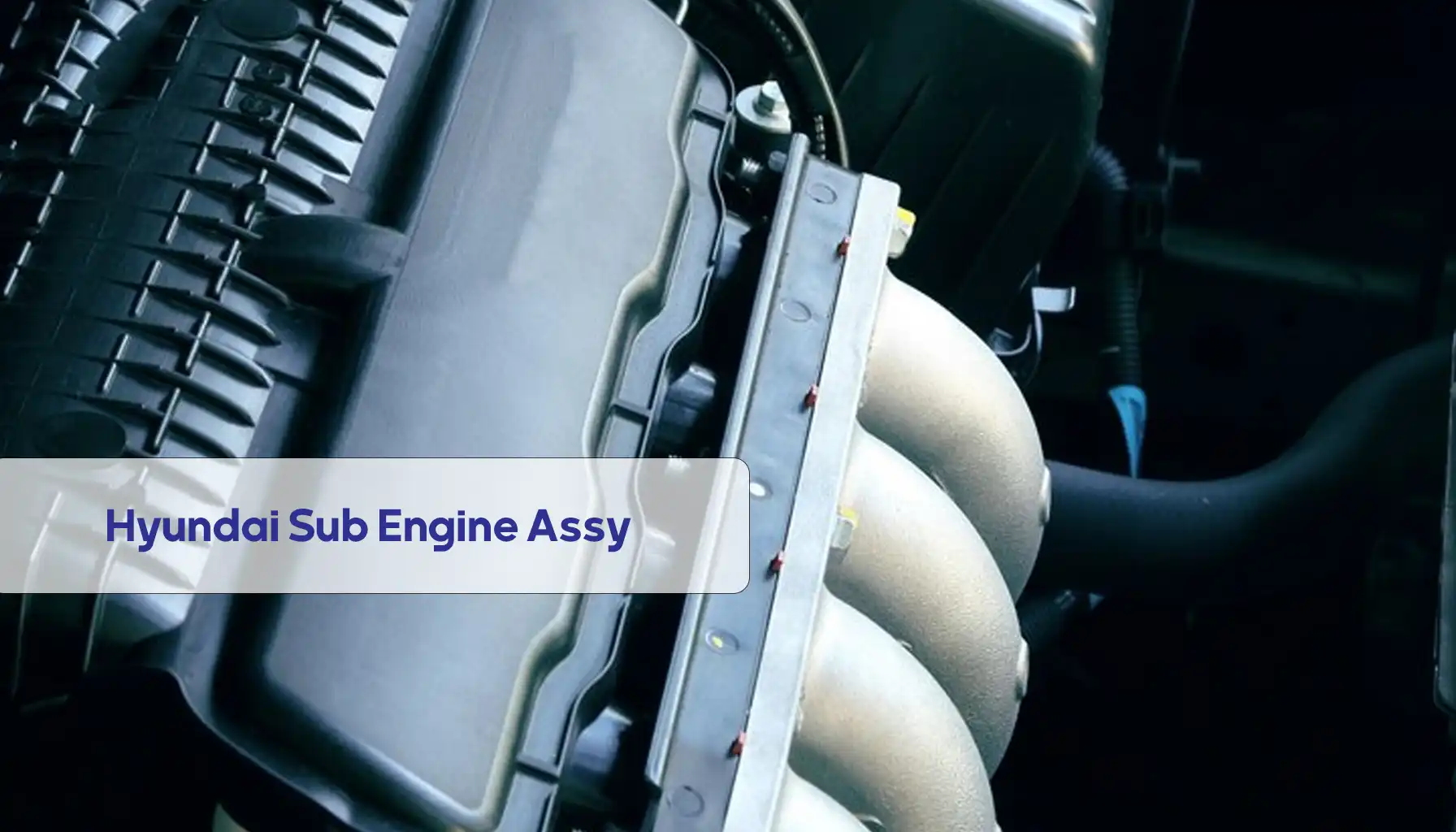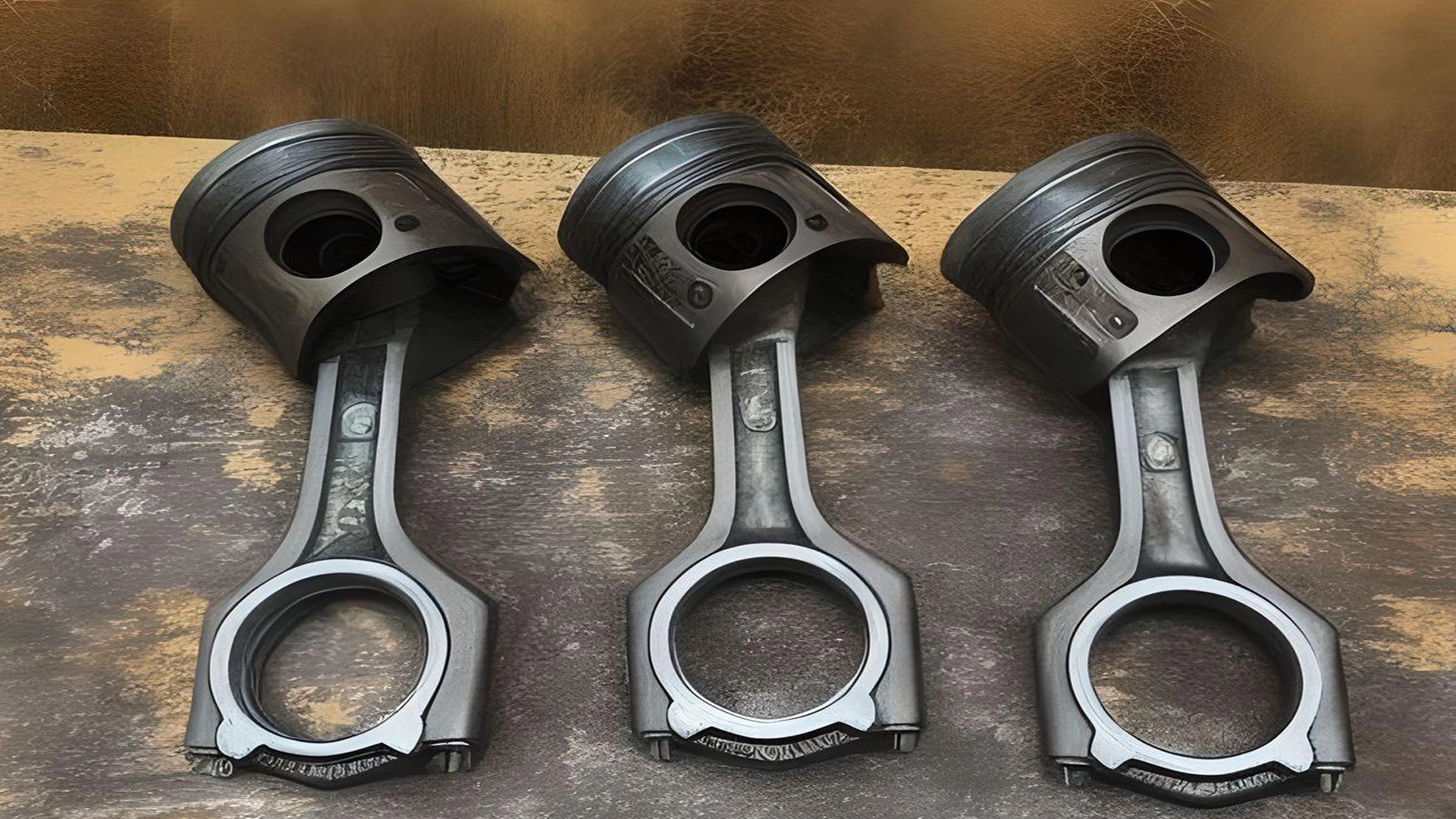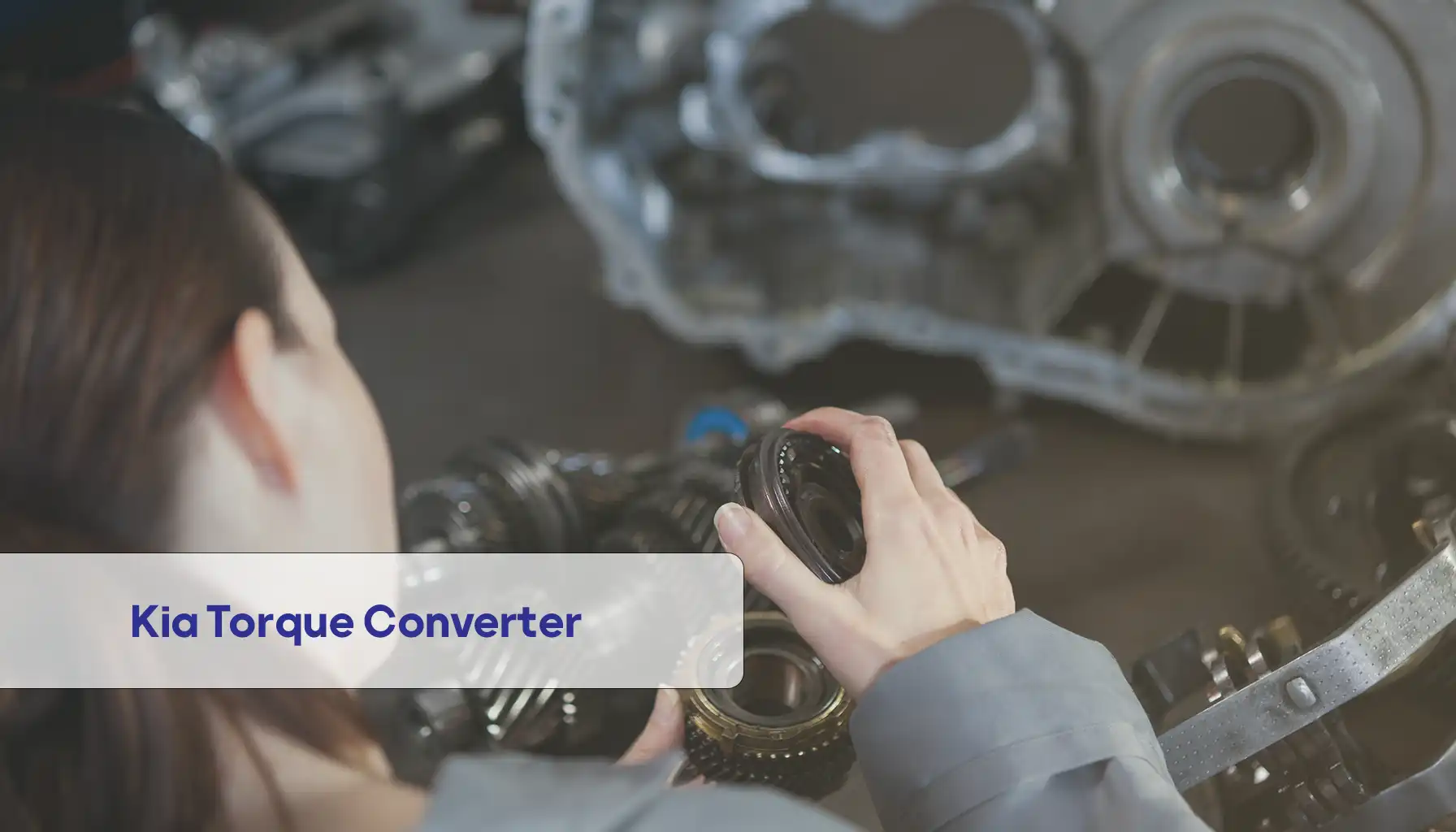A bad rear shock absorber, like a damaged front spring, has signs that need to be taken seriously. If you encounter these signs, you should take your car to a specialist mechanic at the earliest opportunity to have the health of the rear springs examined.

As we’ve said before, the front and rear shock absorbers are the essential mechanical parts of the car’s suspension system, and they are installed near the car’s wheels. The job of the rear shock absorber is to absorb the oscillations and impacts that are applied to the vehicle. For example, the impacts that are transferred from the road to the car due to road bumps and undulations during driving are controlled and expelled by the springs. If this system does not work well, the car will wear out very quickly due to these impacts. The importance of having a spring in the car is so great that even a few minutes of driving without it is unimaginable!
Significant symptoms of a bad rear shock absorber
In response to “What are the symptoms of a bad rear shock absorber,” we should mention several important points such as unusual car movements and jolts, the car pulling to one side, slipping and brutal control of the vehicle in turns, oil leakage from the springs, and uncontrollable wheel movement, colloquially known as “dancing wheels.” If you see any of these symptoms in your car, it is best to show it to a specialist mechanic as soon as possible.

Car pulling to one side
When your car consistently pulls to one side while driving, the suspension system and shock absorbers may have a problem, and your vehicle may have rear shock absorbers that need repair.
Jolts and unusual car movements
If your car has excessive and unusual jolts when passing over speed bumps and potholes, and it dives during braking, the problem is with the shock absorber, and it may be because of a bad rear shock absorber.
Slipping and difficult car control in turns
The shock absorber is part of the suspension system that has a significant impact on car control. A bad rear shock absorber reduces the driver’s control over the car, especially in turns, and can even cause the car to skid in some cases.
Oil leakage from the shock absorbers
If your car has bad rear shock absorbers that are leaking, you should replace them as soon as possible.
“Dancing” wheels
The movement of the wheels up and down when passing over bumps and dips, colloquially referred to as “dancing wheels,” indicates a problem with the shock absorbers.
Tire wear
Wear and tear on one side or all parts of the tire indicate that the shock absorbers have a problem, and you need to address it.
Hearing a clunking sound when passing over bumps
Hearing a clunking sound when passing over bumps is another symptom of a faulty shock absorber. This sound is heard due to the loosening of the shock absorber’s retaining screw.
Rear shock absorber leakage
In a bad shock absorber, some seals protect it from leakage because, as we mentioned, there is hydraulic fluid in it that helps it function. If the seals start to leak, fluid will flow down the sides of your shock absorber and accumulate on the ground under your car. If enough fluid leaks out, the shock absorbers will essentially become useless.
What should we do if we hear a noise from the rear shock absorber?
Sometimes, when you hit bumps, you may encounter a nasty noise from the shock absorbers. This noise could be a sign of a problem with your car’s rear or front shock absorbers. Although not every noise is indicative of shock absorber problems, some noises may indicate a problem with these parts of your vehicle:

Symptoms of a noisy shock absorber
Shock absorbers do more than prevent you from bouncing in your seat when driving on a rough road. The purpose of the shock absorber is actually to help keep your tires on the ground when passing over rough terrain so that vehicle control remains smooth and easy. Your vehicle likely has both shock absorbers and a belt in it, and the belt is designed to accept the entire weight of your car while the shock absorbers connect parts of your suspension system.

Clunking noise from the shock absorber
When you hear a metallic clunking noise while driving over certain road features, especially potholes, speed bumps, and the like, it may be a sign that bad rear shock absorbers have worn out. The impacts cause the coil springs to vibrate against your vehicle’s chassis, and that’s where the clunking noise comes from.

Various things in your vehicle can make a similar clunking noise, so if this is specifically coming from your shock absorbers, you may need to rely on some other symptoms to help you correlate. The clunking can definitely be something in your suspension system that needs to be checked if you hear it.
Is it bad if your shock absorbers make noise?
Yes, anytime a car part behaves contrary to expectations, we consider it a bad thing. The noise sounds like a screeching from the faulty shock absorbers, indicating a defect in the system itself or another part of the vehicle.

Final thoughts
In this article, we’ve discussed the significant symptoms of a bad rear shock absorber; however, you should know that most symptoms that a bad rear shock absorber might show can vary in cold or hot conditions and different seasons and weather.
When examining the types of shock absorber noises, Arsintrading, as a seller of spare parts for KIA and Hyundai vehicles, provides the opportunity to purchase various parts and quality shock absorbers for its buyers. You need to visit the Arsintrading website and, after consulting with the experts of the collection, proceed to purchase your desired product.
For consultation and purchase of car parts, visit the contact with ArsinTrading.



